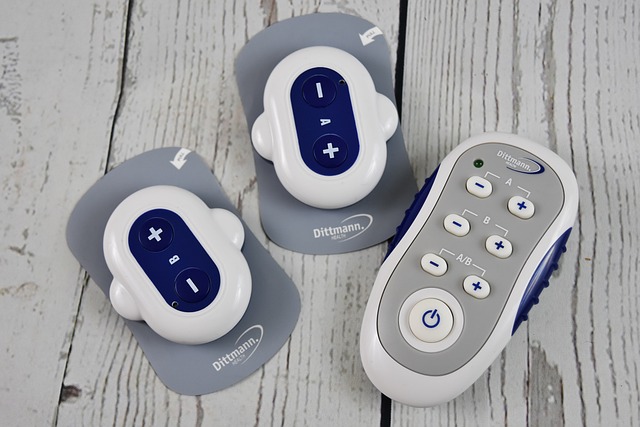Cold water immersion therapy, including ice baths and cold plunges, is a growing trend among athletes and wellness enthusiasts. This practice offers numerous benefits such as reduced stress hormones, increased endorphins, improved blood circulation, faster muscle recovery, and inflammation reduction. As an alternative to cryotherapy, it's an effective post-workout recovery method, enhancing mental resilience and overall well-being.
Discover the surprising mental health advantages of incorporating cold water exposure into your routine. From stress relief and relaxation through cold water immersion therapy to enhanced athletic performance and recovery with cold plunge techniques, this practice is gaining traction as a powerful alternative therapy. Explore the science behind its impact on mental well-being and consider ice bathing as a viable option for supporting your overall mental health. Uncover why these cryotherapy alternatives are becoming popular among athletes seeking improved performance and faster recovery times.
Unlocking Stress Relief and Relaxation through Cold Water Immersion Therapy
Cold water immersion therapy has emerged as a powerful tool for stress relief and relaxation, gaining traction in both wellness circles and athletic recovery routines. This simple yet effective practice involves submerging oneself in cold water, typically an ice bath or a cold plunge, to induce a profound physiological response. The sudden exposure to the cold triggers a cascade of beneficial effects on the body and mind.
One of the key advantages is its ability to reduce stress hormones and promote a sense of calm. When immersed in cold water, the body releases endorphins, often referred to as “feel-good” hormones, which can alleviate tension and enhance overall well-being. Additionally, cold water therapy is known to improve blood circulation, aiding in faster muscle recovery for athletes and reducing inflammation. This makes it a popular choice among sports professionals as a cryotherapy alternative, helping them bounce back from intense workouts or competitive events.
Enhancing Athletic Performance and Recovery with Cold Plunge Techniques
Cold water immersion therapy has gained popularity among athletes and fitness enthusiasts as a powerful tool to enhance performance and speed up recovery. This ancient practice, now known as cold plunge therapy or ice bath therapy, involves submerging oneself in cold water, usually around 50-59°F (10-15°C), for a short period. It is considered an effective cryotherapy alternative, offering numerous health benefits, especially when incorporated into an athletic routine.
The benefits of cold water exposure are multifaceted. For athletes, it can reduce muscle soreness and inflammation, which are common post-exercise. This rapid cooling effect helps constrict blood vessels, minimizing swelling in overworked muscles. Furthermore, cold water immersion for athletes has been shown to stimulate the release of endorphins, the body’s natural painkillers, providing a sense of well-being and potentially improving athletic performance by enhancing focus and mental toughness. These cold water recovery techniques can be easily incorporated into an athlete’s post-workout routine, offering a quick and effective way to refresh and rejuvenate.
Exploring the Science Behind Cold Water's Impact on Mental Well-being
The science behind cold water’s impact on mental well-being is a fascinating exploration of the mind-body connection. Cold water immersion therapy, whether through a cold plunge, ice bath, or other cold exposure techniques, triggers a cascade of physiological responses. When you immerse yourself in cold water, your body initiates a process known as thermoregulation, causing blood vessels to constrict and redirect blood flow to essential organs. This immediate reaction not only improves circulation but also reduces inflammation, which is linked to various mental health conditions.
Beyond physical benefits, cold water therapy has been shown to stimulate the release of endorphins, often referred to as “feel-good” hormones, which can significantly enhance mood and reduce stress. Athletes and individuals seeking recovery techniques often turn to cold water immersion for its ability to aid in muscle recovery and reduce delayed onset muscle soreness (DOMS). As a cryotherapy alternative, cold exposure therapy offers a natural approach to promoting mental resilience and overall well-being, making it an increasingly popular topic of interest in both medical and fitness circles.
Alternative Therapies: Ice Bathing as a Viable Option for Mental Health Support
Cold water immersion therapy, often in the form of an ice bath or cold plunge, has emerged as a viable alternative therapy for mental health support. This ancient practice, increasingly popular among athletes and wellness enthusiasts, offers numerous benefits that can enhance overall well-being. The intense cold stimulates a range of physiological responses, including increased heart rate and blood flow, which can promote better circulation and oxygen delivery to muscles and organs.
This type of cold water exposure therapy also triggers the release of endorphins, often referred to as “feel-good” hormones, which can reduce stress and anxiety levels. Additionally, cold plunge therapy is known to improve immune function by stimulating white blood cell production and enhancing circulation in the lymphatic system. As a result, it becomes an attractive cryotherapy alternative for those seeking natural remedies to support their mental health alongside traditional treatment methods.
Cold water exposure through therapies like cold water immersion and ice bath treatments offers a promising natural approach to enhancing mental well-being. By incorporating these innovative practices, such as cold plunge techniques and cryotherapy alternatives, individuals can unlock stress relief, improve athletic performance, and promote overall mental health recovery. The science behind cold water’s impact on the mind highlights its potential as a powerful tool for navigating life’s challenges, making it an exciting area of exploration in alternative therapies.
